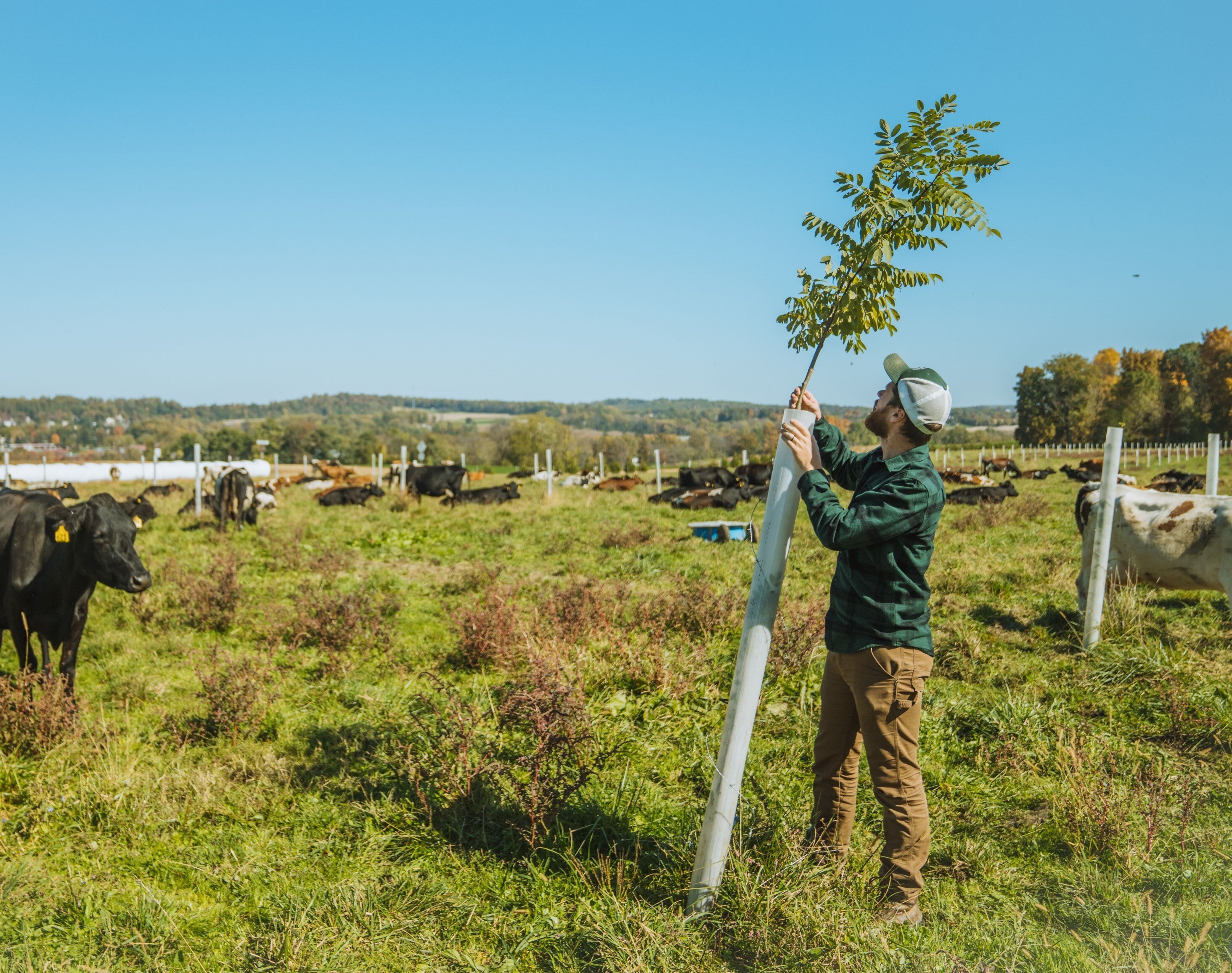Tips for Aspiring Homeschoolers in Rural Florida: We talk to a homeschooling mom in Bradford County, Florida, for advice on how to start homeschooling.
A mere 10 years ago, homeschooling was viewed as a fringe educational option for the very religious or very unconventional family.
Not so today, with an estimated 2 million homeschooled children making up 3 percent of the US population. And that number is only expected to grow in the coming years.
Why the sudden surge in home education?
Surveys have revealed a few leading reasons: religion, aversion to federal and state policies mandating rigorous standardized testing, and an alternative to a one-size-fits-all approach to public education.
Add in an ever-growing list of school funding cutbacks, concerns about bullying, peer pressure, overall safety and the cost of private school, and you can start to sense the home school appeal.
For those dreaming of a simpler life on a rural homestead, homeschooling offers an attractive alternative to commuting to private or public schools.
Rural homeschooling also provides a creative way to use your dream property as a practical-learning and/or outdoor-educational mecca.
But, nostalgic visions of yesteryear and prospects of total family freedom aside, unless you have a degree in education, setting up a successful home school program can sound downright intimidating.
In today’s post, we’ll explain the basics of starting up a homeschool program in Florida including:
- How to determine if your children are candidates for homeschooling
- Legal requirements for Florida homeschoolers
- How to choose a curriculum
- Where to go for support
- What to do about “socialization” …especially in rural areas
- Hybrid educational options for high school students
- And what to do about College
We’ll also include tips from a local Bradford County homeschooling family on how they make it work with their four kids.

Are You (and your children) Candidates for Homeschooling?
This is the question best answered by asking yourself the following questions (and probably some others):
- Can we afford for one parent to stay home and teach while the other works?
- Do I enjoy teaching?
- Would I be happy spending all day teaching my children?
- Can you handle other people’s opinions and concerns?
- Are you willing to go the extra mile to plan social events, build community, etc.?
- Does your family jive with the homeschooling culture, i.e. are you willing to be a bit “different” than the average family?
And of course the BIG question:
WHY do you want to homeschool in the first place?
These answers will be different for every family.
We asked “the BIG” question of local Florida homeschooler Nicole Andrews…
Nicole homeschools her four children ages 12, 10, 9 and 2 (with a fifth on the way) in rural Bradford County, Florida, located between Jacksonville and Gainesville.
She had this to say about her big “WHY?”:
“We moved to Bradford county from Orlando 8 years ago. Our decision to move here was not based on the local school system, and public school was not an option for us. We knew our children would either attend a small Christian private school or be homeschooled.
“Since I wanted to travel with my husband, homeschooling fit our lifestyle better…and it is closer to my heart.
“I have nothing against public or private school settings—and they work for many many people—I just wanted to be more involved in my children’s lives and spend more time with them than a traditional school setting would allow.”
Legal Requirements for Homeschooling in Florida
While it is your legal right to homeschool in the state of Florida, there are some forms and requirements you need to be aware of before getting started.
According to the Florida Department of Education, homeschooling parents must accept these responsibilities:
- Send a written notice of intent to the school district superintendent. The notice must be filed within 30 days of beginning the home education program and must include the following information:
- Name of the home education student(s)
- Birthdate(s)
- Address
- Parent's signature
- Maintain a portfolio of educational records.
- Make the portfolio available for inspection by the superintendent upon 15-day written notice (The statute does not require the superintendent to inspect all portfolios).
- Provide an annual educational evaluation of the student's educational progress to the superintendent. The evaluation must consist of one of the following:
- Each student's portfolio for the past two years, OR
- A letter of termination to the school district superintendent upon completion of the home education program, enrollment in a public or private school, or relocation from the district.
For complete information on requirements for educational portfolios and educational evaluations, visit: The Florida Department of Education’s Home Education Requirements page and their Home Education FAQ page.

How to Choose a Curriculum
With so many options, choosing the ideal curriculum that suits your goals, expectations, beliefs and family culture can be challenging.
For example, if you have a homestead perhaps you’d like to explore a nature-based curriculum, like Waldorf…
…or maybe a religious-based approach is more important to you…
…and what about unschooling, classical education, or Montessori?
Nicole suggests the easiest way for new families to familiarize themselves with curriculum options is to check out local home school conferences and expos. There, you can explore the vendors, physically leaf through material and connect with other families and professionals.
Nicole’s family uses a Christian-based curriculum called: “Classical Conversations.” In addition to supplying a full curriculum for all ages, they also offer local co-ops, events and support.
To find a local expo in your area, visit these sites:
Where to go for Support
When you’re living rural and learning at home, you may have to get creative to grow your local homeschooling support network.
But remember, with more than 2 million like-minded homeschoolers out there, there’s bound to be a like-minded group close by.
With that in mind, here are some starting points:
- Homeschooling conferences/expos
- Local co-ops
- State and national homeschooling associations
- Public schools may offer free tutoring, electives, sports, or “hybrid” educational programs (more on this below)
- Local churches
- Your parks and rec department for organized sports, dance, camps and other extra-curricular activities
- Local homeschooling associations like Florida Parent Educators
- Online resources like Meetup.com
- Volunteer organizations, to help teach stewardship and philanthropy
- Nature centers, arboretums, zoos, etc. may have “young explorer” programs or other natural educational classes, camps and volunteer opportunities for children
- Local private or nature-based schools may offer supplemental homeschooling classes. As an example, check out our previous article on Two Sisters Homestead School.
What to do about socialization
This homeschooling stigma refuses to die despite studies, research and ample evidence to the contrary.
Despite their rural location, Nicole says, “Socialization is a non-issue for us. I have met children that have that typical stigma, but it is not your average homeschooler.
“And if you’re at all active in anything like church activities, piano lessons, dance classes, etc., you won’t have socially-awkward children because of homeschooling. Considering these families have to work harder to build their community, homeschoolers are usually very social.”
Studies such as those cited in this article published in Peabody Journal of Education state homeschooled children “have a strong sense of social responsibility and exhibit less emotional turmoil and problem behaviors than their peers.”
And…
“Those who go on to college are socially involved and open to new experiences. Adults who were homeschooled as children are civically engaged and functioning competently in every way measured so far.”
Nicole went on to say that home school co-ops offer wonderful opportunities for socialization, oral presentation skills and cooperative group activities.
Hybrid Educational Options and College Credit for High Schoolers
As the greater academic requirements of high school (and college) approach, many homeschooling parents feel the need to supplement with professional tutoring or classes.
Hybrid learning programs, a combination of private school and home school classes, are now being offered by many private Florida schools, helping homeschoolers bridge that gap.
Some benefits of hybrid learning include study time with peers, official transcripts, and assistance with the college application process.
Some Florida high schools currently offering hybrid programs include:
- Harvest Community School in Jacksonville
- International Community School in Winter Park
- Providence Community School in Bradenton
- Coastal Community School in Satellite Beach
- The New Harbor Christian High School in Safety Harbor
Did you know…
Homeschooled high school students may also choose to enroll in college-level courses for little to no cost?
It’s called dual enrollment, and, if eligible, these course credits count towards your child’s high school completion and future degree or career certificate.
Check with your local community college to inquire about eligibility requirements for dual enrollment.
The Home School College Advantage
Once shunned by upper-crust academics, homeschoolers are now sought-after students for some of the nation’s top universities.
According to an article published in Business Insider, schools like MIT, Harvard, Stanford and Duke are all actively recruiting homeschoolers due to their ability to thrive in the real world and exceptional performance on standardized tests.
But just because universities are seeking out homeschoolers doesn’t mean the application process will be any easier than for children enrolled in traditional school settings.
In addition to enrolling your child in the dual enrollment programs listed above, it pays to immerse yourself in the intimate details of the homeschool-to-college application process.
Talk to the admissions department of your child’s target universities, get support from groups like the Florida Parent Educators Association and talk to other homeschooling families who have successfully navigated this process.
Bonus Tips for Rural Homesteaders:
Since she’s living the rural homeschooling life, we asked Nicole for some tips on how she makes it all happen:
Plan, plan, plan!
“Moving from Orlando to a more rural area has changed our life in a lot of ways!
“When we lived in Orlando we were right downtown and Publix was half a mile from my house. Now, if I forget breadcrumbs from the store, I have to make them, so I plan a whole lot better and just get everything done when we’re in Gainesville or Middleburg.
“It’s made me change some things but it’s amazing and I love it. I no longer like relying on running out all the time for every little thing …it saves a lot of time and stress to plan ahead.”
Keep your Days Structured but Flexible
One of the appeals of homeschooling is the freedom of a flexible schedule.
Many homeschooling families study in the morning when children are typically at their freshest and leave the afternoon open for more unstructured activities.
“A typical day is structured but flexible, and I’m not left yelling at the kids to get out the door,” Nicole says. “Days of the week and times are always slightly irrelevant to us.”
Include your Children in Everyday Household Management
Parents considering homeschooling often wonder how they will ever find time to do it all.
But…who says you can’t recruit helpers?
“Many hands truly do make for light work, and the older children are big helpers,” says Nicole.
“I always looked at large families and thought, they’re crazy! But it works as long as the children have been trained with a good work ethic and you are modeling that love of family time together. Then they are right in the mix helping get the work done.”
To learn more about homeschooling in Florida, visit: The Florida Parent Educators Association.























